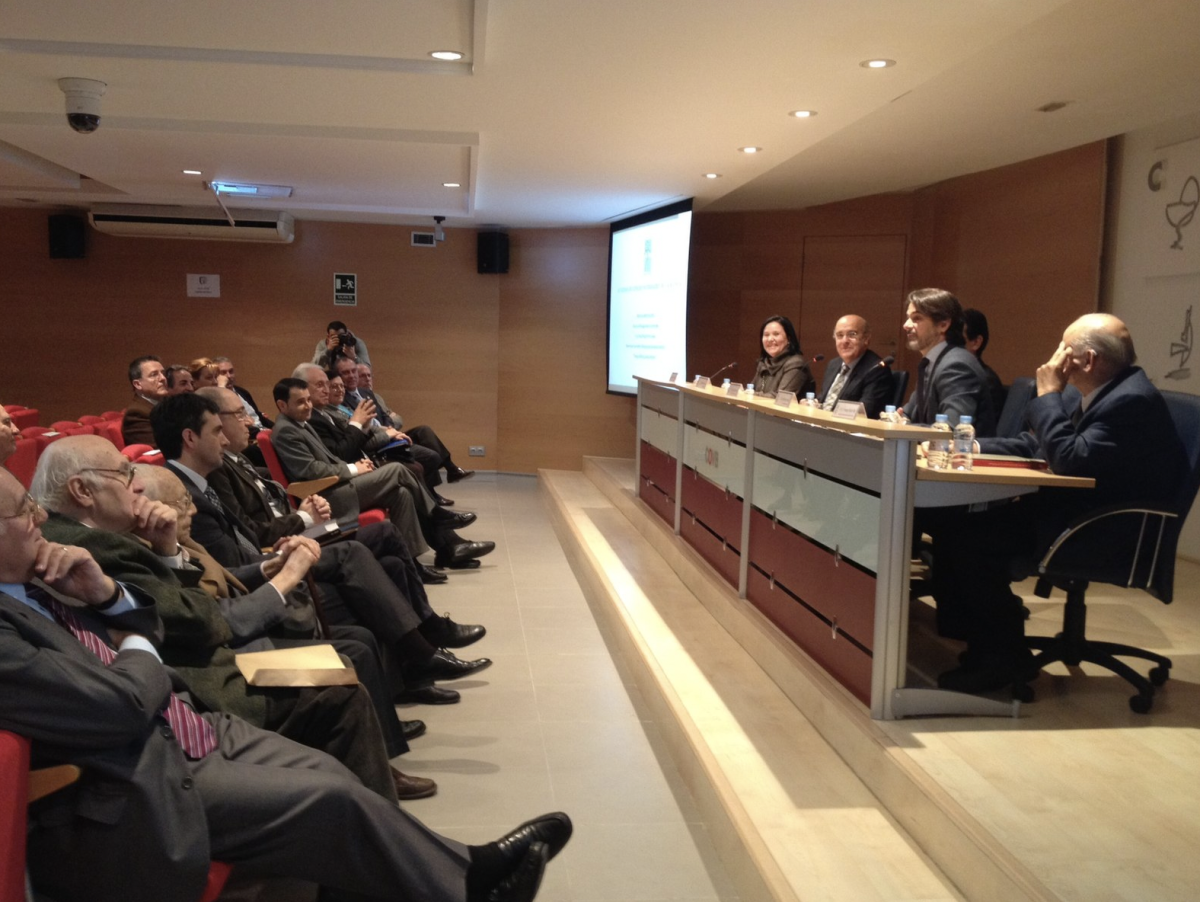Raz Segal, associate professor of Holocaust and genocide studies at Stockton University, discussed the South Africa v. Israel International Court of Justice (ICJ) case at an event at Fordham Law School on Thursday, April 3.
In its ruling issued January 26, the ICJ ordered Israel to suspend military operations in Gaza to prevent alleged violations of the international Genocide Convention.
The discussion, titled ‘‘International Law, the International Court of Justice, and Genocide,” was sponsored by the Dean’s Course Enrichment Fund and the International Studies, Islamic Studies and Political Science departments. Alumni, faculty, staff, parents, students and the general public were greeted by Zein Murib. Murib is an associate professor of political science and women’s, gender and sexuality studies at Fordham.
Segal began by presenting slides of WhatsApp messages from a collection known as Voices from Gaza between family members currently in Palestine’s Gaza Strip to illustrate the reality of many living amid a crisis.
“I am still in my home in Gaza (City). Many people fled to the South. But many stayed here in the North after they saw the massacre of 70 people and more than 200 injured on the road south,” an anonymous journalist and translator said in a voice message to a friend on Oct. 15, 2023.
Comparing the initial WhatsApp message to a quote published by an article in The New York Times on Dec. 21, 2023, Segal deepened the contrast between an outsider’s perspective and an insider’s perspective to the ongoing tensions in Gaza. Segal aimed for The New York Times to display the trend of downplaying the scale of violence in the media.
“The ICJ, now finally, after 57 years of Israeli impunity of open and unashamed violations of international law and the occupation are recognized as such, not just by the court (ICJ), but also in the crisis of dozens of states around the world officially.” Raz Segal, associate professor of Holocaust and genocide studies at Stockton University
“During the first six weeks of the war in Gaza, Israel routinely used one of its biggest and most destructive bombs in areas it designated safe for civilians,” authors of The New York Times article wrote.
Segal then compared these sources’ accounts of Israel’s violence to the definition of genocide established by the Genocide Convention.
In outlining the case to audience members, Segal noted that the ICJ’s ruling is the beginning of the end to Israel’s “impunity,” or fleeing from punishment by international and government stakeholders, in regard to “Israel’s weaponization of international humanitarian law.”
“The ICJ, now finally, after 57 years of Israeli impunity of open and unashamed violations of international law and the occupation are recognized as such, not just by the court (ICJ), but also in the crisis of dozens of states around the world officially,” Segal said.
“I understand this conflict is not black and white, good versus bad, and that there is a lot of gray. I think it is interesting how the same dehumanizing tactics of ‘’othering’’ which were used for every act of violence to one group orchestrated by another is being used here as well.” Taylor Wedderburn, FCLC ’25
Providing context to the development of international law from the United Nations and the ICJ, audience members connected their understanding with a further analysis of the ICJ’s recent ruling on March 28 on South Africa v. Israel.
The ruling addressed the “catastrophic living conditions of Palestinians in the Gaza Strip,” summarized by Segal, calling for an Application of the Convention on the Prevention and Punishment of the Crime of Genocide in the Gaza Strip, indicating the need for dire provisional measures.
Following Segal’s discussion, those attending were invited to participate in a question forum. Segal continued to project his argument that the ICJ’s case of South Africa v. Israel, starting on Dec. 29, 2023, sparked “unprecedented change” by holding Israel accountable for their actions in committing what many, including world leaders and experts, have called a genocide against Palestinians.
Taylor Wedderburn, Fordham College at Lincoln Center ’25, attended the event and felt Segal had deepened her understanding of the historical and social context of the war between Israel and Gaza.
“I understand this conflict is not black and white, good versus bad, and that there is a lot of gray,” Wedderburn said. “I think it is interesting how the same dehumanizing tactics of ‘’othering’’ which were used for every act of violence to one group orchestrated by another is being used here as well.”
Quoting from “Don’t Look Left: A Diary of Genocide,” Segal concluded by reinstating that Israel is beyond an era of impunity and it is the time to support the struggle against Israeli state violence.

